I remember first hearing about Oceans and being a bit chuffed off.
I’m an admirer of the Evolution series, interested in board games with depth and am part-seal myself so you’d think I would have dived straight into Oceans.
But with Evolution: Climate having only just been delivered to Kickstarter backers in late 2016 and Evolution: The Oceans (as it was then) announced in early 2017, it felt as if publisher North Star Games were abandoning Climate before its pledge manager had even cooled. The result was that I viewed the Oceans Kickstarter campaign with bitterness, failing to see Oceans as anything but a cynical attempt to get fans to fork out for another entire game based on the same underlying system.
Shows what I know.
Oceans is, for me, the pinnacle of all branches of the Evolution board game tree.
Setting the Ocean Colour Scene
As with all games in the Evolution series, the goal of Oceans is to create animals that out-compete your opponents’ animals for limited food supplies. Through clever card play you create new species, give your species colourful traits to help them vie for food, and influence the availability of food resources.
However, Oceans deviates from its forebears in some interesting ways, creating an experience that’s far more open, exploratory and dynamic.
Gone are the formal game rounds, the body-size tracks and the strict delineation between herbivores and carnivores. In their place come simplified feeding and defence rules, the concepts of ageing and over-population, and the magnificent Deep deck.
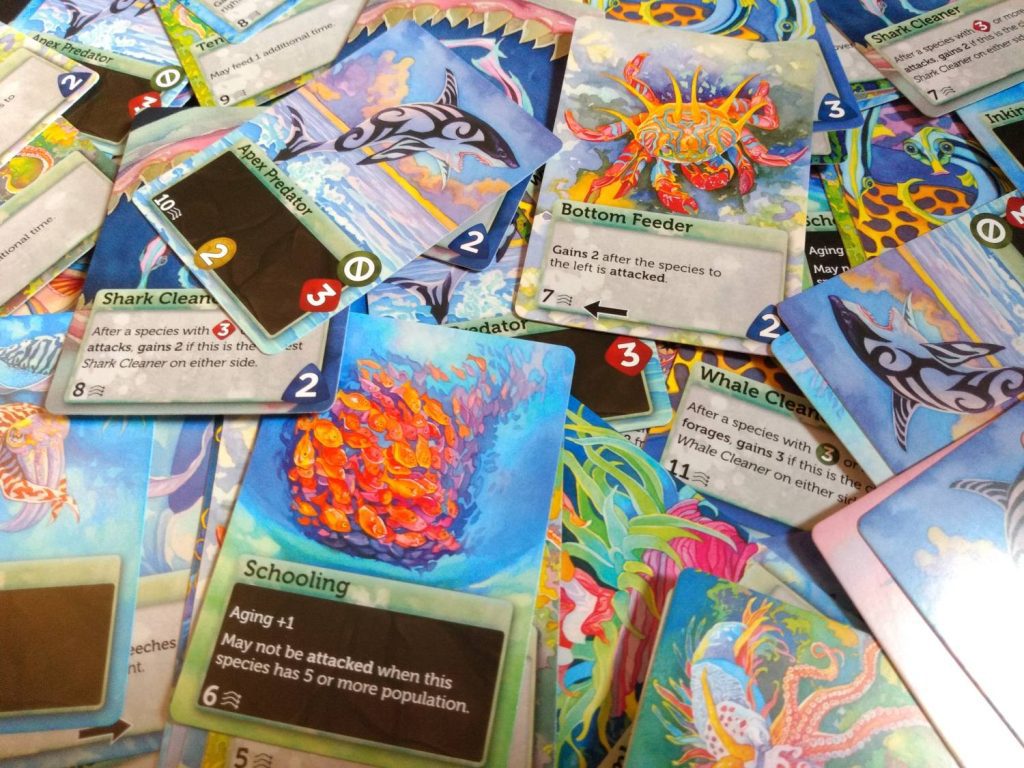
Some of these changes are more obvious than others. If you’ve heard anything about Oceans, then you’ll probably know about the much-praised Deep deck, over 80 unique traits, many with huge, game-changing effects. Diving into this stack of cards is like putting your hand into God’s lucky dip tombola – whatever you draw will be intriguing, exciting or useful. Sometimes all three.
But it’s not the Deep deck that pushes Oceans higher up the evolutionary ladder than its ancestors. Instead, the changes that actually fuel the game’s tension and thrills are found amongst those seemingly innocuous rules tweaks around feeding and ageing.
Simple Is Smart
At first glance Oceans’ streamlining of the feeding rules seems to be a case of dumbing down the Evolution experience.
Instead of managing body size and population size alongside herbivorous and carnivorous diets, Oceans does away with body size entirely, makes all its animals omnivorous from the very start and combines population and food into one concept. It’s all ruled by just 4 symbols which dictate your ability to feed (from the reef, the ocean and your opponents) and defend yourself. If a species has a Reef score (green circle) of 2 then it can take 2 food from the reef area – its population has now grown by 2.
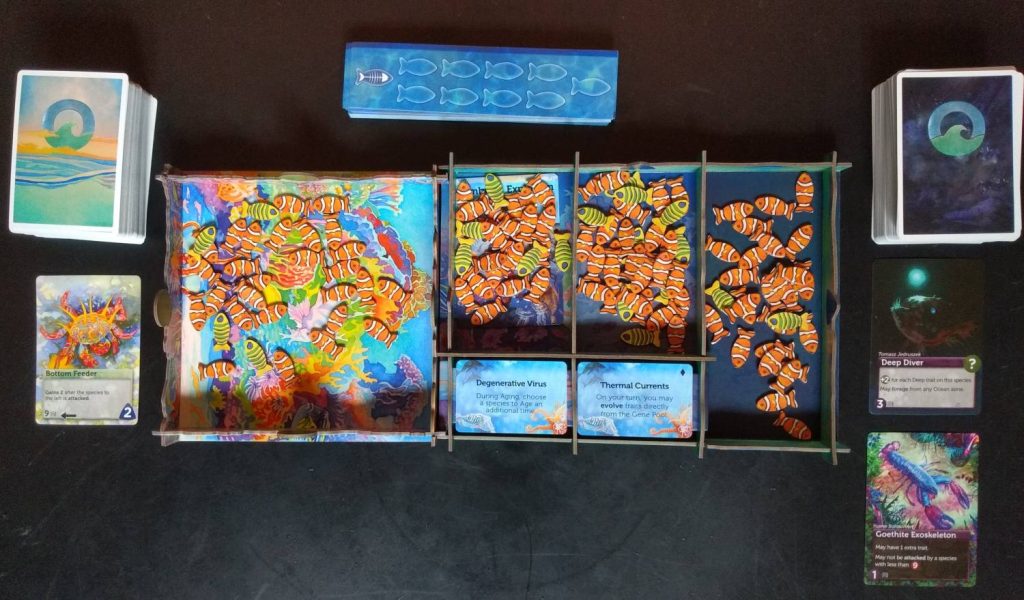
This unassuming process works in the same way for feeding from other sources, whilst the defensive symbol (yellow shell) reduces the amount of population that another species can take from your species.
But rather than limiting Oceans, this simplification creates a spacious framework for diverse game play. It gives the game room to breathe, enabling funky trait interactions that are more interesting than the occasionally linear trait pairings of its predecessors. The feted Deep deck couldn’t work within the structure of earlier games in the series but here it shines thanks to these innocuous rule tweaks.
Behind Every Smile…
If the revised feeding rules add flexibility, the additions of ageing and overpopulation provide bite.
All games in the Evolution series can be harsh but it’s a cruelty driven by the competition for food. As food supplies dwindle, other players start eying up the weird selection of meat snacks you’ve carefully created.
That remains, but Oceans adds its own teeth that lurk ominously at either end of the population tracks.
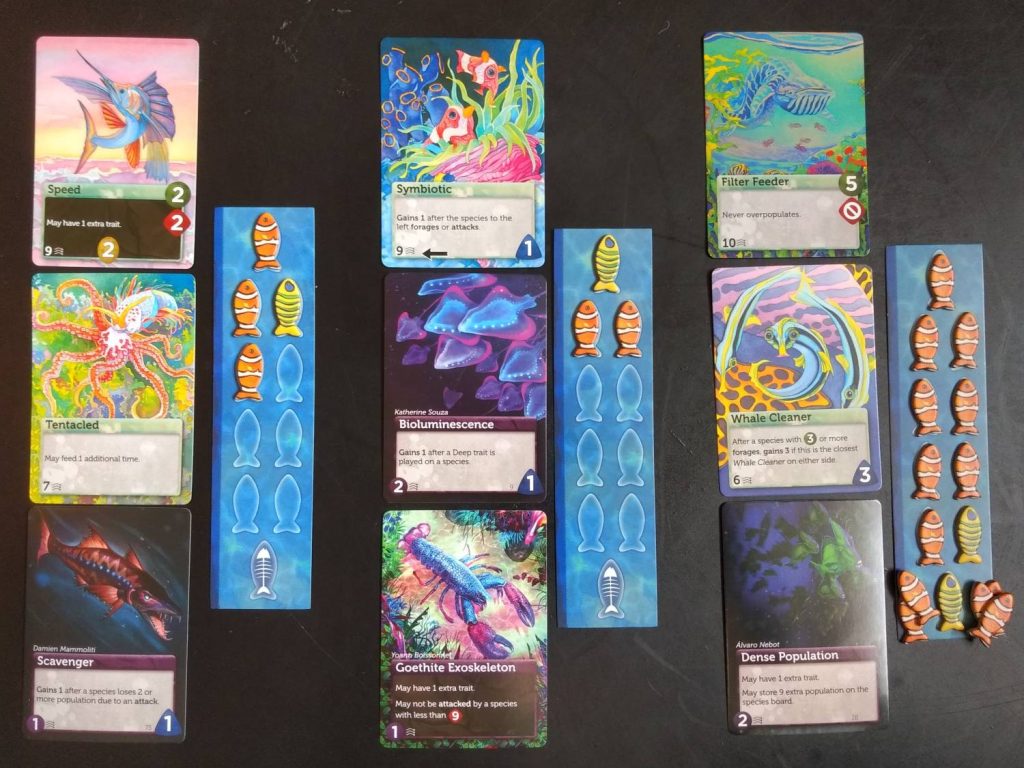
At the end of each of your turns all your species age, losing some of their population. If a species doesn’t have enough population to lose then it goes extinct. The catch is that each turn you can only feed one of your species. Your species are constantly on the verge of starvation but you can only cater for one at a time.
Yet success brings its own challenges; the threat of overpopulation looms constantly. Feed a species too much and its population crashes as, thematically, its food supply is exhausted. In Oceans you’re the Red Queen, constantly running just to stay in the same Goldilocks zone.
It’s the first game in the series where the challenge is as much about surviving the machinations of the game itself as it is about outcompeting your opponents. As much a brawl against each other as everyone fighting not to be eaten by the shark first.
The Sea is Emotion Incarnate
Together these changes make Oceans a game of wonderful contradictions. Cleaner rules improve accessibility, whilst also enabling more complex fishy engines. Inter-player aggression is as present as ever but the real villain is ageing. The game’s teeth nip constantly but you always have a turn to rescue an endangered species. It’s harder, but also provides the space and tools to overcome its dangers.
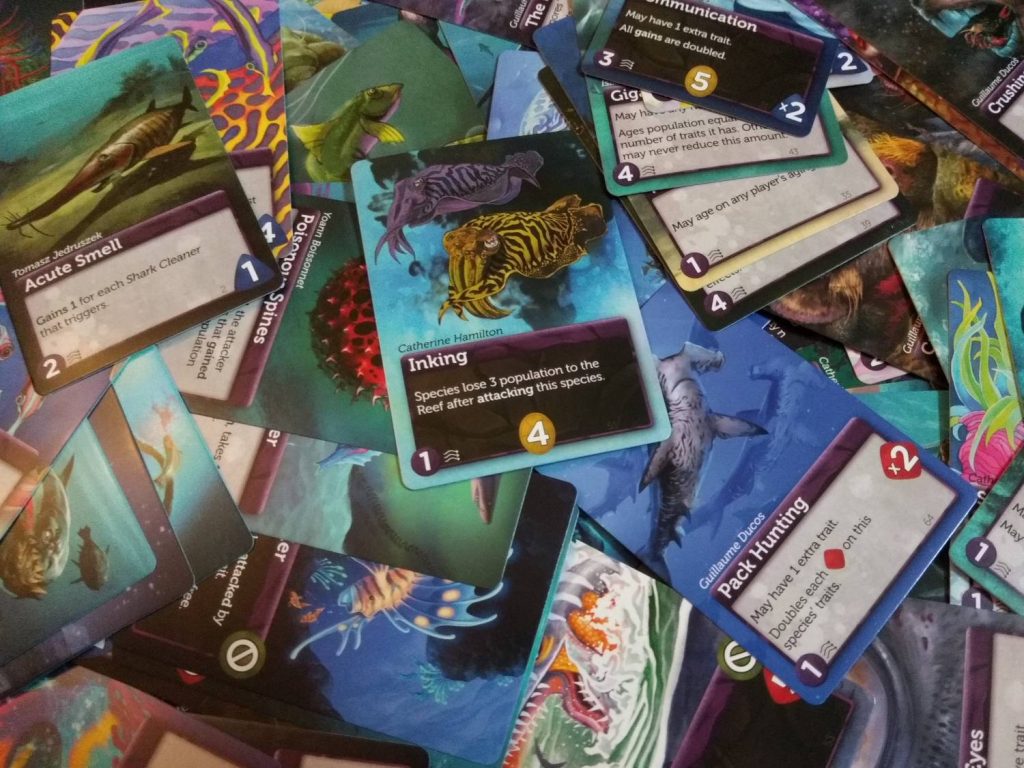
It’s fun to explore new combinations and options, to slot traits together and see how they interact. The designers understand that “games are about feeling”: it feels pretty great when you figure out how to swim past the gaping mouths waiting for you on your next turn. The world is a wondrous place and Oceans, with its gorgeous Surface traits and beguiling Deep traits, lets you feel that wonder, evoking a sense of danger and exploration, risk and astonishment.
In that original 2017 Oceans announcement, Nick Bentley, one of the designers and a former biologist himself, discusses how theme emerges from the “artful implementation of key dynamics”. Oceans’ representation of its subject matter is far looser than its predecessors but it’s from that looseness that the game’s connection to its theme sings. It’s the gaps left unsaid that fuel the imagination. You feel the theme of selection, rather than being force-fed it.
And it’s such an accommodating, elegant game. Take the fish tokens. They start off as food, become population once eaten, convert to points when siphoned off by ageing, and then can be spent to pay for Deep cards. A single token transforms from provisions to population to points to pounds and players barely blink an eye. It’s one of the smoothest pieces of board game design I’ve ever seen. (The fish are also coloured by player count and “roughly divided” during set-up. I wish all games were this player-friendly.)
I am a mountain, I am the sea
I’ve enjoyed many games of Evolution: Climate and Evolution: New World. These are great games that nail their theme and gameplay. They’re engaging, challenging and entertaining.
For me, Oceans is better. Not as clinically balanced as Evolution: Climate or as pitilessly cruel as Evolution: New World but a hell of a lot wilder.
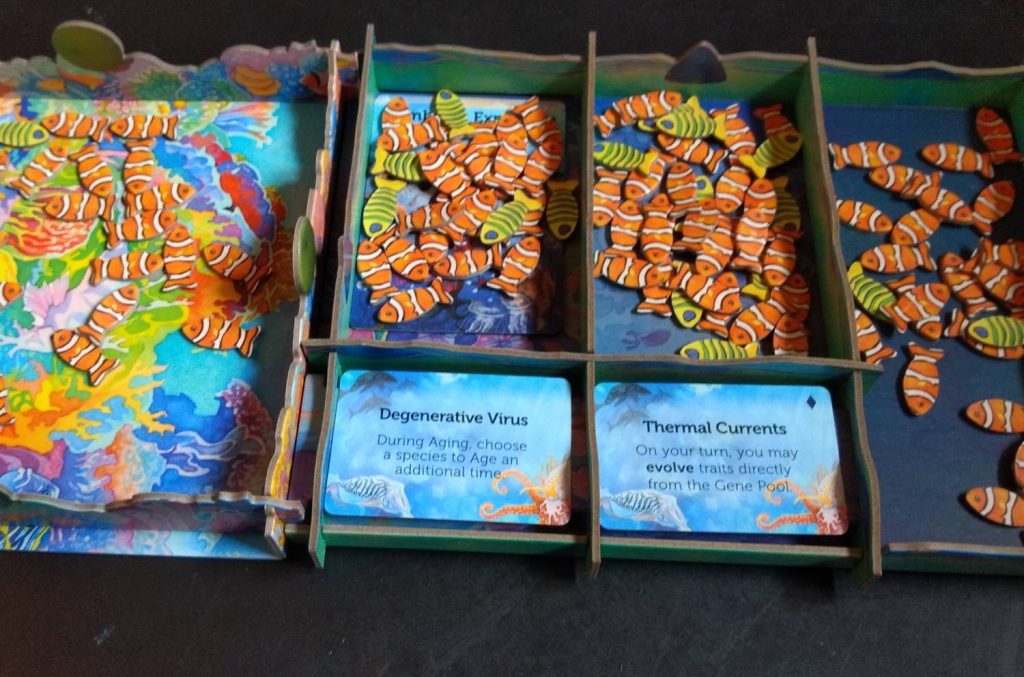
In fact, the only thing Oceans lacks from its predecessors is that there’s less opportunity to anticipate your opponent’s moves and counter them. With the loss of the round structure there’s no big reveal and few dramatic shifts in food availability. Oceans is a drip-feed of continual interest rather than periods of high drama separated by lulls of game states playing out.
It’s a shame to lose those round-based reveals but the change creates stronger gameplay and in some ways it’s closer to what happens in nature – selection as a result of what is rather than speculation on what might be. Then again, it also transforms the game into turn-based evolution rather than the simultaneous selection that occurs in nature. Another contradiction.
Bentley talks about how he and Brian O’Neill (marine biologist and co-designer) understood the importance of knowing when to use academic expertise and when to allow game design to take the lead. It’s the same balance of fun and fidelity that Dmitry Knorre weighed up back when he was designing 2010’s Evolution.
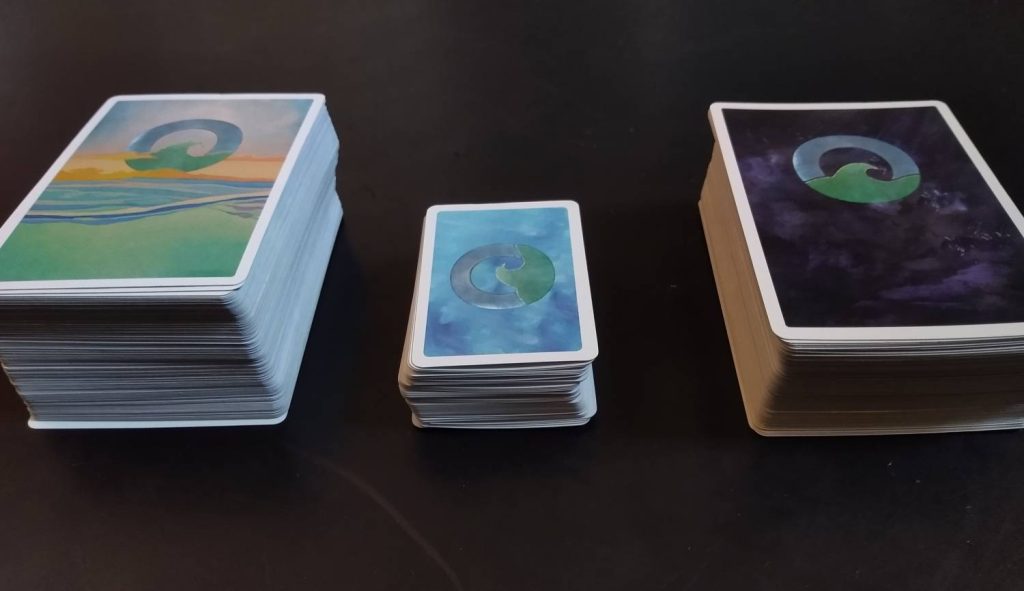
The theme of these games matters to me, as it does to a lot of people. The Evolution games are all abstractions, of course, but they pride themselves on their science. The team at North Star Games are justifiably proud that their 2014 adaptation of Knorre’s original game received a glowing review in the scientific journal Nature from Stuart West, Professor of Evolutionary Biology at the University of Oxford.
Yet ‘Evolution’ was dropped from the original title, in part because Oceans nudges the series further towards speculative fiction. (The upcoming Legends of the Deep expansion pushes this even further with, among other things, a tribe of flying whales – read the Meeple Mountain review here.)
Oceans is a game based on natural selection with fantastical leanings. As a former biologist with an interest in board games with depth and being part-seal myself, you’d think I’d be disappointed.
Shows what you know.


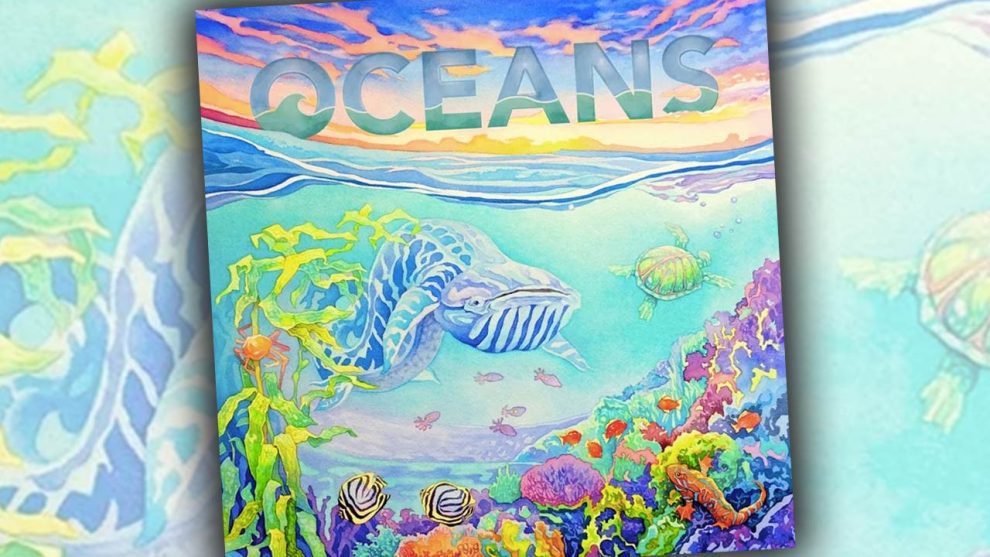



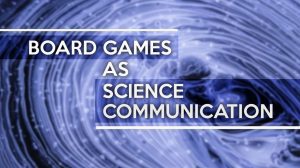





Add Comment